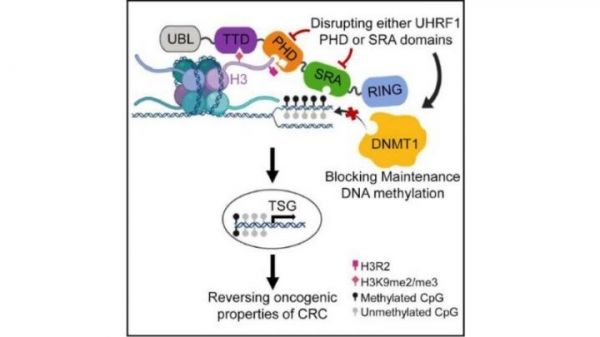Working with human colon cancer cells and mice, researchers led by experts at the Johns Hopkins Kimmel Cancer Center say they have successfully blocked the activity of portions of a protein known as UHRF1 and restored the function of hundreds of cancer-fighting genes that became “misregulated” by the disease.
In a report on the research, published online, April 4, 2019, in Cancer Cell, the investigators say the findings could lead to an entirely new strategy to fight a broad range of cancers.
Researchers have long known that gene mutations can cause cancers. However, it recently became clear that faulty gene regulation can also prompt and maintain cancers, explains study leader Stephen Baylin, M.D., Virginia and D. K. Ludwig Professor for Cancer Research and professor of oncology and medicine. This second phenomenon can occur through a process known as epigenetics, in which chemical tags settle onto genes to turn them on or off.
One type of chemical tag, called a methyl group, typically silences the function of genes once it’s clipped on by cells. Cancers harness this type of epigenetic regulation, using it to broadly turn off genes that cells normally use to fight the onset or growth of cancer.
Read more at Johns Hopkins Medicine
Image: Working with human colon cancer cells and mice, researchers led by experts at the Johns Hopkins Kimmel Cancer Center say they have successfully blocked the activity of portions of a protein known as UHRF1 and restored the function of hundreds of cancer-fighting genes that became "misregulated" by the disease. (Credit: Johns Hopkins Kimmel Cancer Center)


